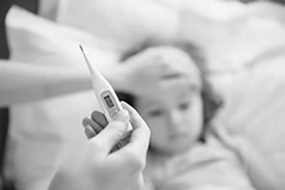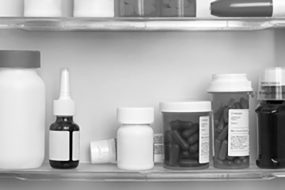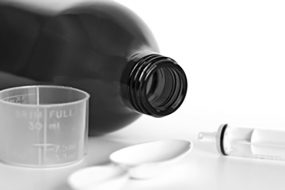Quiz Question and Answers

Janine believes that her daughter, Samantha, has a bad cold. Concerned that her daughter’s symptoms might get worse, Janine takes Samantha to an urgent care clinic. She hopes the doctor will give Samantha an antibiotic because she believes antibiotics will help Samantha feel better.
An antibiotic will help Samantha feel better if she has a cold.
True or False
False. Antibiotics do not work on viruses such as those that cause colds, flu, bronchitis, or runny noses, even if the mucus is thick, yellow, or green.
Antibiotics can save lives, but they aren’t always the answer. Illnesses such as colds and flu are caused by viruses. Since antibiotics don’t work on viruses, they won’t help Samantha feel better. Antibiotics are only needed for treating certain infections caused by bacteria, but even some bacterial infections get better without antibiotics. Antibiotics aren’t needed for many sinus infections and some ear infections.

At the urgent care clinic, Samantha is diagnosed with a cold, and antibiotics are not prescribed. Several days later, Samantha is getting better but still has some cold symptoms. Janine wonders if antibiotics may help now, so she calls Samantha’s pediatrician.
The typical cold can have symptoms that last for 10-14 days and antibiotics will not help.
True or False
True. Cold symptoms can last up to 10-14 days. Antibiotics will not help because illnesses such as colds and flu are caused by a virus.
Samantha’s pediatrician reassures Janine that Samantha is getting better and does not need an antibiotic and gives her instructions and specific medications that can help Samantha feel better while her body continues to fight off the virus.

Janine remembers that she has some antibiotics leftover from the last time Samantha was sick and asks Samantha’s pediatrician if this antibiotic may help if Samantha does not get better.
What should Janine do with leftover antibiotics?
A. Give them to Samantha now
B. Save them for the next illness
C. Give them to a friend or family member
D. Dispose of them properly
The correct answer is D, dispose of them properly. Any expired or unused medications can be disposed of through drug take back programs in Janine’s community, or she can put them in a plastic bag with dirt, kitty litter, or used coffee grounds and throw them away in the household trash.
Janine should not give Samantha leftover antibiotics from a previous illness because antibiotics should only be taken for the illness and time period the antibiotics were prescribed for. Taking the wrong medicine may delay correct treatment and can cause severe side effects. Samantha’s pediatrician explains to Janine what symptoms to watch for that would require Samantha coming in for a visit.

Janine runs into her neighbor, Cynthia, who asks how Samantha is feeling. Janine relays she is thankful that Samantha is feeling better and that she did not need antibiotics, because antibiotics can have many potential side effects.
Which of the following can happen after taking antibiotics?
A. Yeast infection
B. Severe diarrheal infection called C. difficile infection
C. Allergic reaction
D. All of the above
The correct answer is D, all of the above. Common side effects of antibiotics can include rash, dizziness, nausea, diarrhea, and yeast infections. More serious side effects include Clostridioides difficile infection (also called C. difficile or C. diff), which causes diarrhea that can lead to severe colon damage and death. People can also have severe and life-threatening allergic reactions to antibiotics.

Cynthia expresses her relief that Samantha is feeling better. Cynthia also mentions that she just got her flu shot and is trying her best to stay healthy so that she does not get sick.
What are some of the best ways to stay healthy and keep others healthy?
A. Cleaning hands with soap and water or using hand sanitizer with at least 60% alcohol
B. Staying home when sick
C. Getting all recommended vaccines, including the seasonal flu vaccine
D. All of the above
The correct answer is D, all of the above. Some of the best ways to stay healthy and keep others healthy are cleaning hands by washing with soap and water for at least 20 seconds or using a hand sanitizer that contains at least 60% alcohol; covering your mouth and nose with a tissue when coughing or sneezing; staying home when sick; and getting recommended vaccines, such as the flu vaccine.